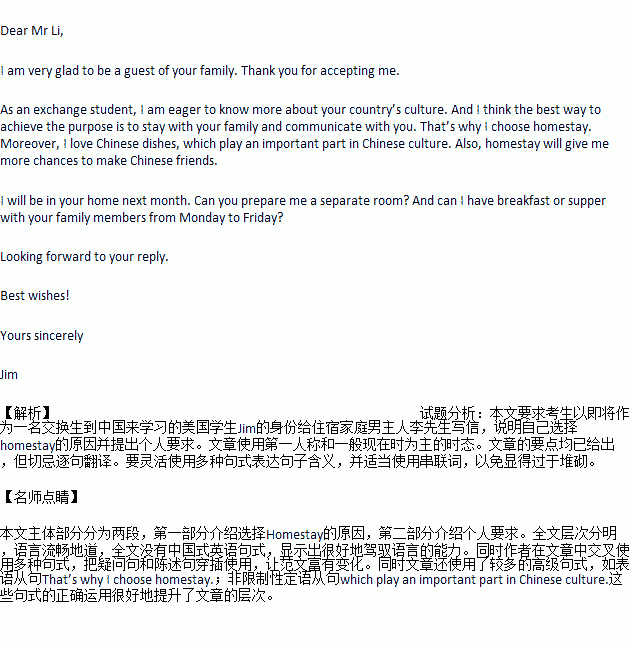��Ŀ����
����ѧ��Jim������Ϊһ�����������й���ѧϰ��������һ������Լ���õ�ס��ͥ��homestay��������Jim�������������дһ���ţ�Ҫ�����£�
ѡ��homestay��ԭ��
1�������й��Ļ����˽��й����˽����磻
2��ϲ���й���ʳ������
����Ҫ��
1���������ķ��䣻
2������һ��һ������͡����ͣ���һ�����壩��
ע�⣺
1������100�����ң�
2�����µĿ�ͷ�ͽ�β�Ѹ������������ܴ�����
3�������ʵ�����ϸ�ڣ���ʹ�������ᡣ
Dear Mr Li,
I am very glad to be a guest of your family. Thank you for accepting me.
____________________________________________________________________________________________
____________________________________________________________________________________________
____________________________________________________________________________________________
____________________________________________________________________________________________
____________________________________________________________________________________________
____________________________________________________________________________________________
_______________________________________________________________
Best wishes!
Yours sincerely,
Jim
 ��У����ϵ�д�
��У����ϵ�д�

 ad
ad